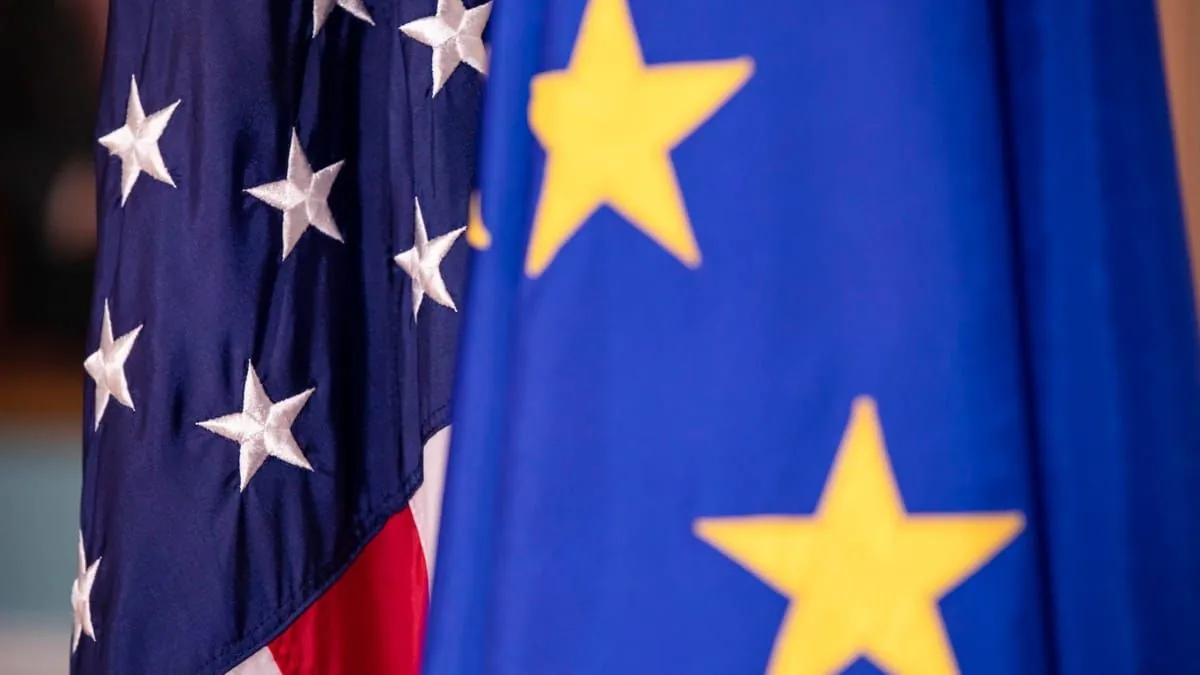In the aftermath of Joe Biden's victory over Donald Trump in the 2020 US presidential election, Europe experienced a sense of relief. The continent had endured four tumultuous years under Trump's leadership, characterized by unpredictable policy decisions and strained diplomatic relations. European leaders and diplomats had been taken aback by an American president whose actions often seemed driven by emotion rather than strategic considerations.
The concept of "Trump-proofing" Europe gained traction among officials and experts following Trump's departure from office. This strategy aimed to reduce European dependence on the United States in three key areas: security, foreign policy, and economic partnerships. However, four years later, as the 2024 US election approaches, European officials concede that little meaningful progress has been made towards these objectives.
Europe's attempts to strengthen its defense capabilities have faced significant hurdles. The war in Ukraine exposed the continent's lack of preparedness for a land conflict and highlighted divisions among European nations regarding continental security. While the European Commission published its Strategic Compass in March 2022, outlining plans for consolidated spending, procurement, and troop-sharing, implementation has been slow.
Benjamin Tullis, director of the Democratic Strategy Initiative, a Berlin-based think tank, stated, "NATO hasn't functioned as a true alliance for years – it's lopsided; American-dependent. In the long term, we need to return NATO to a mutually beneficial alliance."
The concept of "strategic autonomy" has also proven challenging for Europe to achieve. The EU's attempts to balance diplomatic and economic relations between the United States and China have been complicated by human rights concerns and geopolitical tensions. The Comprehensive Agreement on Investment between the EU and China, concluded in principle in December 2020, has been on hold due to sanctions imposed on Chinese officials over alleged human rights abuses against Uyghur Muslims.
European countries remain divided on their approach to China. While some nations, like Lithuania, have taken a more confrontational stance, others rely heavily on Chinese investment and trade. The EU has adopted a "de-risking" policy towards China, but has stopped short of full decoupling.
Economically, Europe continues to be heavily dependent on the United States. The US remains Europe's largest export market, and American protectionist policies, such as the 2022 Inflation Reduction Act, have caused concern among European leaders. While the EU has tools to respond to potential trade disputes, as demonstrated in the Boeing-Airbus case resolved in 2021, there are fears that a full-scale trade war could disproportionately impact Europe's already sluggish economy.
Internal divisions within Europe have further hindered progress towards greater independence. The continent's complex political landscape, with 27 EU member states, non-EU countries, and NATO, makes it challenging to form a unified foreign policy. Recent gains by populist groups with varying priorities have added to this complexity.
Velina Tchakarova, a leading geopolitical strategist based in Austria, observed, "The EU's inability to assert a unified leadership role on the global stage, particularly in response to crises like the Ukraine war, reveals a political vacuum. As a result, Europe may find itself increasingly reactive to U.S. decisions rather than charting its own course, especially if Trump returns to office with a more unpredictable foreign policy."
As the world faces increasing instability, the United States remains the most viable solution to many of Europe's pressing challenges. Regardless of the outcome of the upcoming US election, Europe must make a compelling case for continued American engagement and support. The continent simply lacks the capacity to upset the longstanding reality that has played a crucial role in maintaining stability for decades: Europe needs America.
[[A senior European diplomat]]
"In terms of defense, we are a vassal state of NATO, which is a vassal state of America. When we saw that it would take 20 years and a lot of money to genuinely build up European defense, we gave up, and our strategy became 'keep America happy' because why bother blowing up something that benefits us when we can spend our money on other things?"
In conclusion, Europe's efforts to "Trump-proof" itself have fallen short of expectations. The continent remains deeply intertwined with the United States in matters of security, foreign policy, and economics. As the global landscape continues to evolve, Europe must grapple with its internal divisions and find ways to strengthen its position on the world stage while maintaining its crucial alliance with America.
